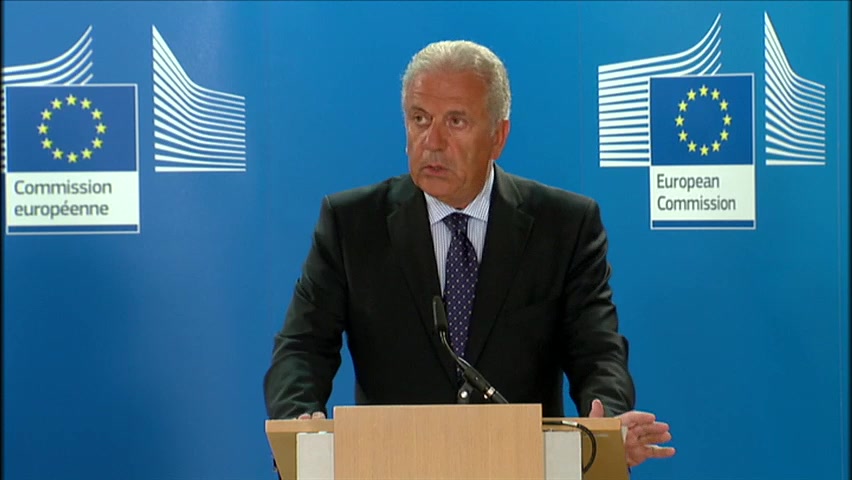Poland – The major significance of the rulings delivered between 13 and 15 July by the European Court of Justice and the Polish Constitutional Court is not lost on anyone in Poland. Outside of Poland, few media outlets seem to understand what is really at stake in this conflict of jurisdiction and to what extent it actually concerns all Europeans.
The importance of the issue did not go unnoticed, however, in the German newspaper Tagesspiegel, whose commentator considers that these “three days of July have shaken Europe to its foundations”: “In the western part of the EU, pent-up rage against Poland – and Hungary – is likely to erupt. Can’t we just kick them out? Enlargement to the east was not intended to ruin our community of values! In the East, on the other hand, many citizens will be satisfied.
It’s high time someone showed the intrusive moralists in Brussels where the limits of their control lie and insisted on respecting the division of competences laid down in the Treaty,
that is to say, what is the responsibility of the member states and what is the responsibility of the EU. Secretly, some Western citizens may also feel satisfaction.”
Indeed, as the German newspaper reminds us, “The source of the EU’s political and legal legitimacy is the nation states. What the EU is allowed to do is based on what the member states have delegated to it in the European treaties. The organization of justice is not part of it, nor is the determination of what is taught through sex education and what say parents have in it. If the EU argues that it has no direct competence but can derive its interference from the fact that it must uphold European values such as democracy, the rule of law and equal treatment, it is skating on thin ice.” The newspaper’s readers are reminded that last year their own Federal Constitutional Court also rejected the idea of an automatic primacy of European law that would apply even in areas of national competence.
This reaction is in line with the analysis made in Poland by the president of the Ordo Iuris Institute Jerzy Kwaśniewski, for whom “the dispute is about whether the EU can extend its competences at will without any control by the member states, to the point of becoming a federation or a European superstate which would have the power to crush any resistance by national parliaments, governments and courts.
And we are not just talking about the EU’s illegal interference in our judicial system. We are also talking about family law, which is explicitly excluded from the EU’s competences by the Treaties.
Yet in the COMAN case, the ECJ ordered Romania to recognise same-sex unions and adoptions. We are also talking here about the Commission’s recent threats and announcements to force member states to implement measures linked to gender ideology. Finally, we are talking about such mundane but crucial issues as the massive EU debt and the conditionality mechanism, which would allow access to EU funds to be denied on the basis of unclear and arbitrary criteria, precisely through secondary legislation. The dispute is about what the European Union should be and what Poland should be. ”
And what applies to Poland also applies, of course, to the other 26 nation states that make up the European Union.
But even in Poland, reactions to the conflict of jurisdiction between the European Court of Justice and the Polish Constitutional Court depend largely on which side of the debate commentators are on: the centre-right conservative majority or the nationalist right-wing opposition, on the one hand, or the liberal centre or left-wing opposition, on the other.
For Justice Minister Zbigniew Ziobro, the Polish Constitutional Court’s decision protects “the Polish constitutional order against illegal interference, usurpation and legal aggression by the EU institutions”.
For Ziobro, if it is accepted that the EU Court of Justice can suspend Polish courts, it could just as easily suspend the President of the Republic or the Parliament in the future.
As for Prime Minister Mateusz Morawiecki, he does not hide his frustration with the way Poland is treated by the European Commission and the ECJ: “I cannot accept the idea that Poland is treated differently or, even worse, that it is discriminated against compared to very similar legal situations in Germany or Spain.” Moreover, Morawiecki said, “Nowhere in the treaties has the power to reform the judicial system been delegated by the member states.”
An ongoing “legal Polexit”?
Adam Bodnar, who was Poland’s Ombudsman until 15 July, takes a different view: “We are still in the process of this legal Polexit which is taking place step by step. It remains to be seen where this will lead us, or whether we will eventually realise the road we are on, because the British, too, may not have known how it would all end.”
Tomasz Grodzki, the Speaker of the Senate, who is a member of the centre-left Civic Platform (PO), questions the legitimacy of the Polish Constitutional Court and believes that by ratifying the Lisbon Treaty, Poland has committed itself to respecting the decisions of the ECJ, whatever they may be.
Donald Tusk, a former president of the European Council and current chairman of the European People’s Party as well as interim chairman of the PO, considers that
“It is not Poland, but Kaczyński and his party that are leaving the EU. And only we Poles can effectively oppose it.
Contrary to what PiS propaganda claims, no one is holding anyone in the EU by force.” Szymon Hołownia, the leader of the centrist Polska 2050 party, is of a similar opinion, and his reaction to the Polish Constitutional Court’s ruling was to propose its dissolution.
However, Deputy Justice Minister Sebastian Kaleta recalled a statement made by the PO’s Grzegorz Schetyna 11 years ago when he was Speaker of the Sejm: “The review of EU law by the Constitutional Court (…) is permitted. That it is possible for the Constitutional Tribunal to review EU secondary legislation results from its systemic role as the guarantor of the supremacy of the Constitution in the system of sources of law, as well as the protector of the constitutional rights and freedoms of individuals. Given the position of the Constitution as the supreme law of the Republic of Poland, the possibility of examining the conformity of EU rules with the Constitution must be accepted. ”
For Jerzy Kwaśniewski of the Ordo Iuris Institute:
“We must, in the name of the balance of power and the sovereignty of the member states, put curbs on the arbitrariness of European officials.
One of the curbs is the Treaty’s principle of conferral of competences, whereby the EU institutions can only act within the limits of the powers conferred on them. However, the ECJ cannot rule on this issue, as it is the very institution whose possible usurpation of power must be subject to review. It cannot therefore be a judge in its own case. The appropriate place to review EU secondary legislation is the constitutional courts, because the EU exercises its competences within the limits of the powers delegated to it under the national constitutions.”




